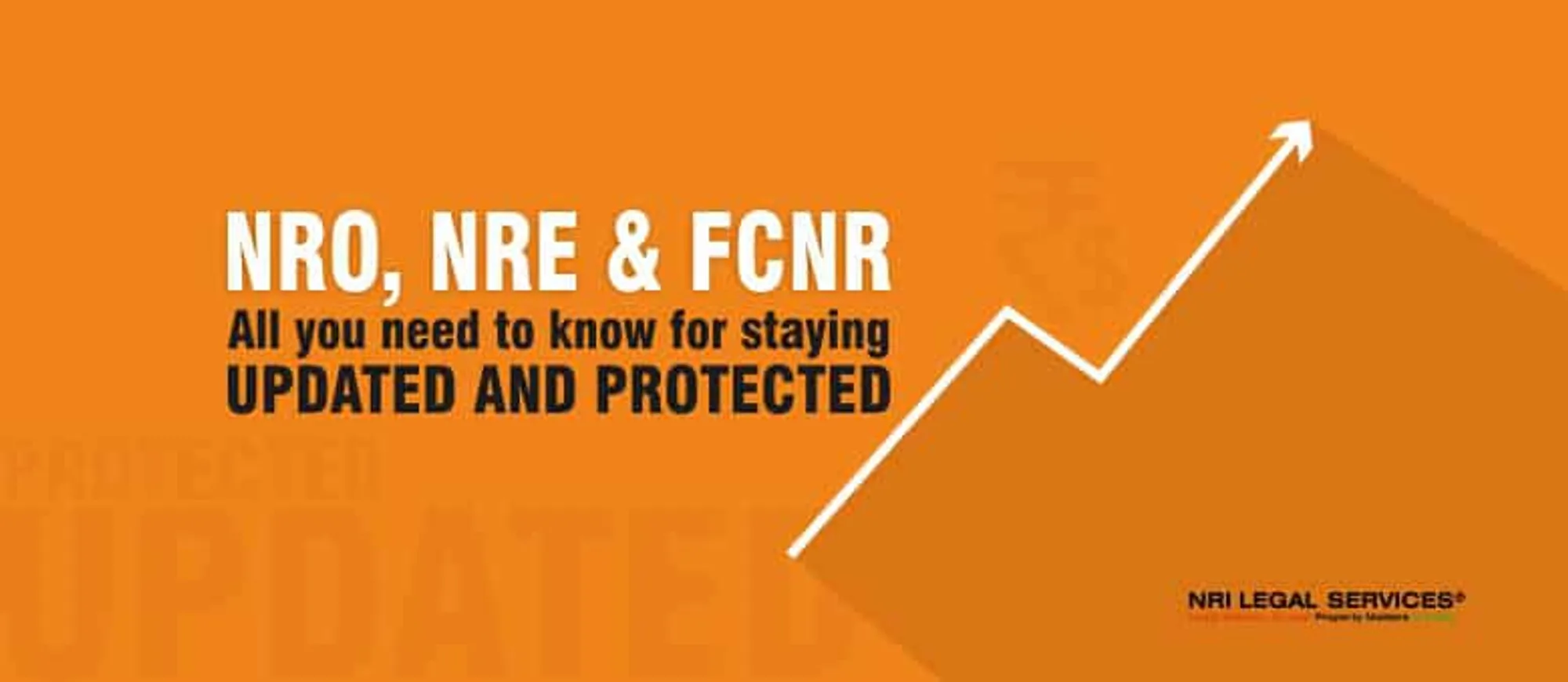With the changing scenario, the demonetization, and introduction of new rules and limits related to investments, finance, and property, India is trying to create a transparent environment for all its citizens. This affects everyone whether a permanent citizen or an NRI. Therefore, we want to make an effort and refresh the knowledge of NRIs about the property documents needed and other provisions made by the government to safeguard their interest.
FINANCE AND PROPERTY
The NRIs need to be acutely aware of what steps they can take to protect themselves from all the changes that are going on.
To begin with, here’s a peak into some terms used in the financial transaction scenario.
- An NRI (Non-Resident Indian) is a resident of India who holds an Indian passport and has provisionally immigrated to another country for six months or more for work, residence or any other purpose.
- A Person of Indian Origin (PIO) is who used to be a resident of another country other than Pakistan, Bangladesh, Sri Lanka, Afghanistan, Bhutan, Nepal, and China but his/her ancestors were Indian nationals at least four generations away.
The PIO scheme was withdrawn by the government of India in January 2015 and merged with OCI scheme. To become equal to the current OCI, the PIO will need to get a unique stamp saying “lifelong validity” and “registration not required,” in their PIO card.
- Overseas Citizenship of India (OCI) is a scheme that was introduced in response to demands for dual citizenship by the Indians who migrated after 26 January 1950, particularly in developed countries except those who are settled in Bangladesh and Pakistan. The card is the proof of lifelong visa and has “Life Time Visa” printed on it. It will be valid with any valid passport.
Before Feb. 2015, passengers holding OCI card were required to carry the lifetime visa sticker passport while traveling to India. This requirement was removed. Now the OCI only need to have his/her card (the blue booklet), and current valid foreign passport to travel to and from India.
- Types of Bank Account NRIs
To encourage NRIs and PIO staying overseas to invest in India, the government has allowed these individuals to open three types of NRI accounts:-
- FCNR Account
- NRO Account
- NRE Account
FCNR Account:
- FCNR stands for Foreign Currency Non-Resident Account.
- It is denominated in one of the major six currencies –
- US Dollar
- Euro
- Pound Sterling
- Japanese Yen
- Australian Dollar
- Canadian Dollar
- It is a fixed deposit foreign currency account.
- These accounts are used by NRIs to park overseas incomes as foreign exchange in India without having them to convert them to rupees.
- The principal amount received is in foreign currency, and therefore, the interest earned is in the same currency and also completely tax-free.
- FCNR Accounts are fully repatriable, and transfer of funds from FCNR to NRE account and vice versa is allowed.
- The funds from the local sources are not authorized to be transferred to FCNR accounts.
- These accounts can be held either as a joint account or in a single account. The joint account holder should be an NRI, but the beneficiary can be an NRI or a resident.
NRO Account:
- An NRO Account stands for Non-Resident Ordinary.
- It is a savings or current account held by NRIs in India that helps them to manage their income they earn in India such as rents, dividends, or pension from abroad.
- The account holder can deposit and manage accumulated rupee fund conveniently through this account.
- Foreign Currency deposited into the account is converted into Indian Rupees.
- Any NRI can open an NRO account.
- The transfer of funds from NRO to NRE account is not allowed.
NRE Account:
- An NRE Account stands for Non-Resident External.
- It is a current or savings account held in India that allows the account holder to bring funds from outside and transfer it to India conveniently and securely.
- The money transferred to this account in any foreign currency is converted to INR.
- Transfer of funds from NRE to NRO or FCNR account is allowed.
- It is important to note here that funds from local sources are not authorized to transfer to NRE accounts unless they are eligible to be remitted abroad.
Since India is trying to go digital, making its economy and infrastructure strong, it affects the management of finance and property, so it’s best for NRIs to be up-to-date. Being up-to-date about economic changes and property documents required empowers them to face any issue without any complication.

